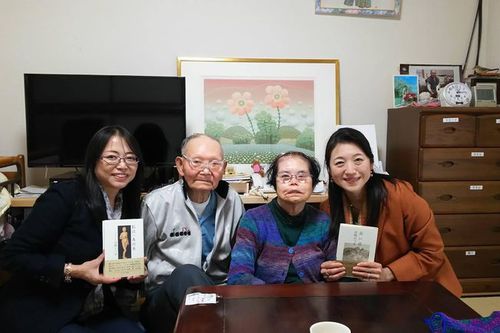October 4, 2017
Radiation Literacy Essential
Keywords: Disaster Reconstruction Nuclear Power Well-Being

Copyright 2017 Miwako Hosoda All Rights Reserved.
Tohoku Fukko Nikki (Tohoku Reconstruction Diary), a weekly feature in the Tokyo Shimbun newspaper, delivers news stories on reconstruction efforts in communities devastated by the earthquake and tsunami that struck Japan in March 2011. The articles are written by the JKSK Yui-Yui Project, an initiative to support survivors of the 2011 disaster by the non-profit organization JKSK Empowering Women Empowering Society. This month, we introduce an article in the March 7, 2017 edition, which tells us the importance of accurate knowledge about radiation.
The Fukushima nuclear power plant accident in 2011 transformed the daily lives of local people of all ages and has undermined their mental and physical health. Activities previously taken for granted, such as playing outdoors, farmwork, and even mushroom hunting, were either restricted or banned.
The rise in overweight children and number of strokes among middle-aged people are noticeable. Many people are reportedly suffering from post-traumatic stress disorder (PTSD). And to rub salt on the wound, these people are also experiencing unreasonable discrimination (stigma) simply because they come from Fukushima. This can lead to self-stigma, seeing oneself as dirty.
Social prejudice and discrimination of victims of disease or pollution is nothing new; other examples of this include Minamata disease and leprosy, also known as Hansen's disease. Sachiko Bamba, a representative of the Veteran Mothers' Society, and I visited a national sanatorium for leprosy patients, Nagashima-Aiseien in Okayama prefecture, on November 3, 2016. There, we spent time talking with the people in the sanatorium and toured the museum, which told the history of Nagashima-Aiseien. During the visit, Sachiko commented, "It's the same as Fukushima. We are suffering the same pain."
Despite leprosy's low level of infectiousness and the existence of effective pharmaceutical treatments, patients of the disease still suffer social discrimination. The current circumstances faced by leprosy patients looks the same as what is happening in Fukushima. It is not easy for discriminated people to regain self-respect and overcome the discrimination. They withhold from others where they come from. They change their names. To be silent about oneself and hide one's identity is self-denial. Such people can recover their self-esteem only when they step out of such circumstances and become able to talk about themselves. But that takes time.
Medical examinations have scientifically shown that the radiation hazard caused by the Fukushima nuclear accident was less severe than initially feared. Yet the situation is getting worse because public knowledge of radiation tends to be inaccurate. Radiation literacy--a correct understanding of radiation--is essential.
Miwako Hosoda
Vice President
Seisa University
Related
"JFS Newsletter"
- Aiming to Build New Communities in Earthquake-Stricken Areas: Ishinomaki Jichiren's Initiatives
- Investment to Help Disaster-affected Areas -- Initiative of Disaster Area Support Funds Initiative
- Disaster-Affected Ishinomaki -- Present Status (Part 2)
- Disaster-Affected Ishinomaki -- Present Status (Part 1)
- Tohoku and the World: 5 Years Since The Great East Japan Earthquake and Tsunami


